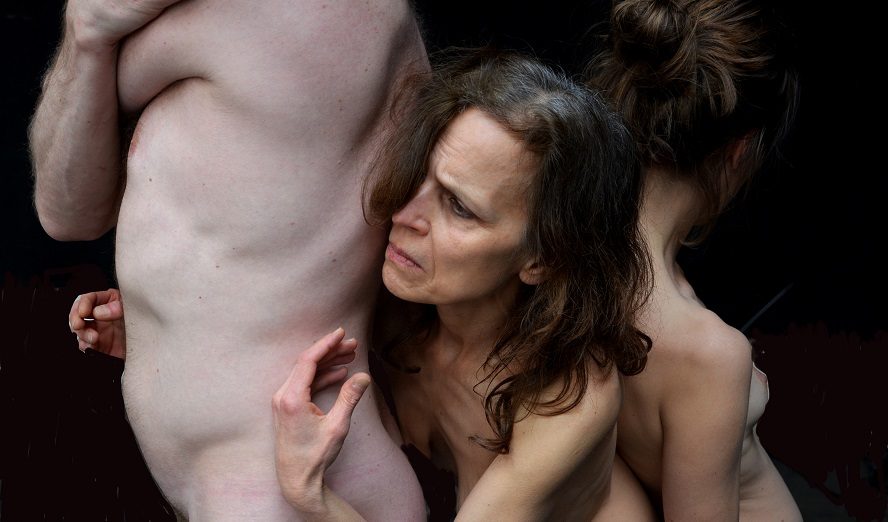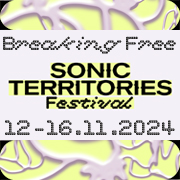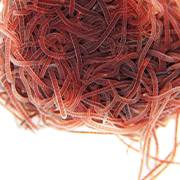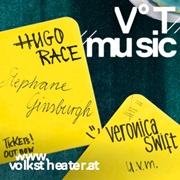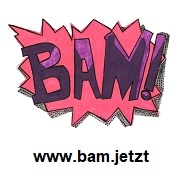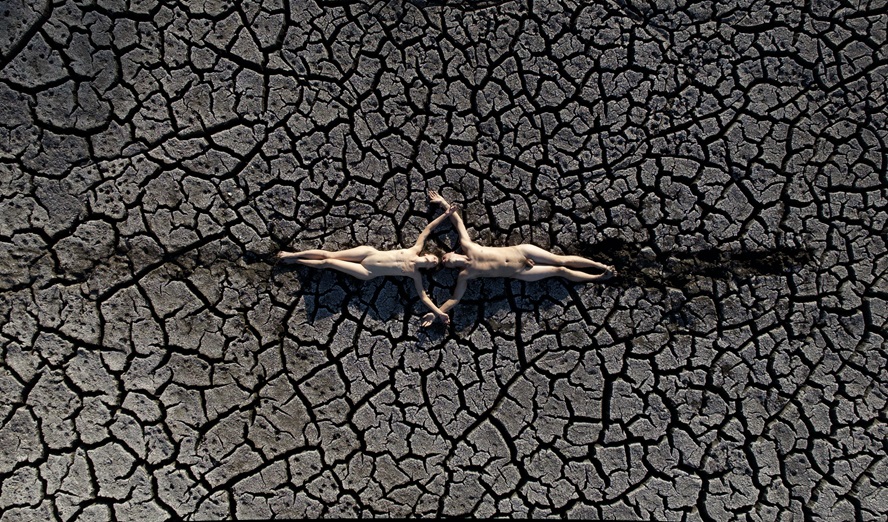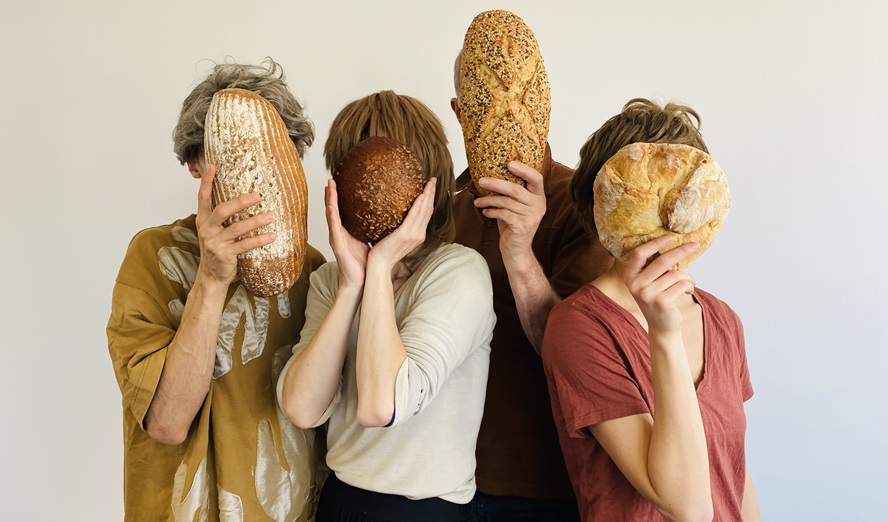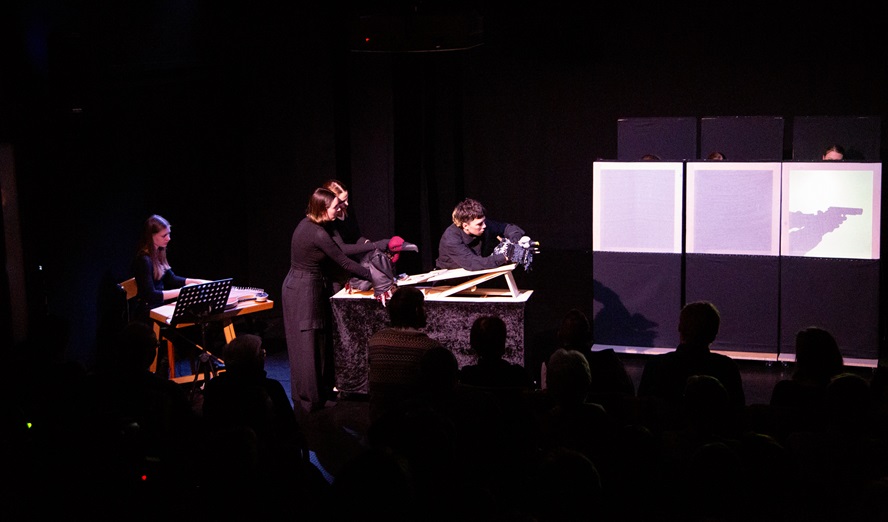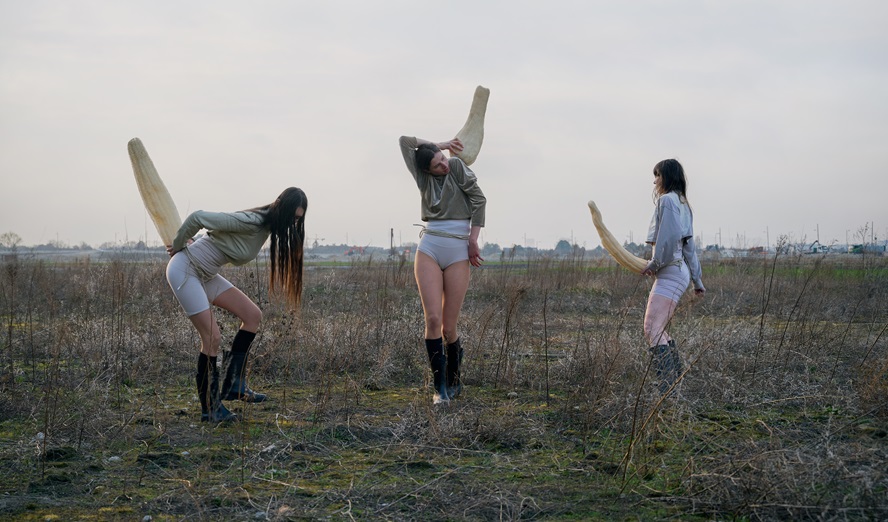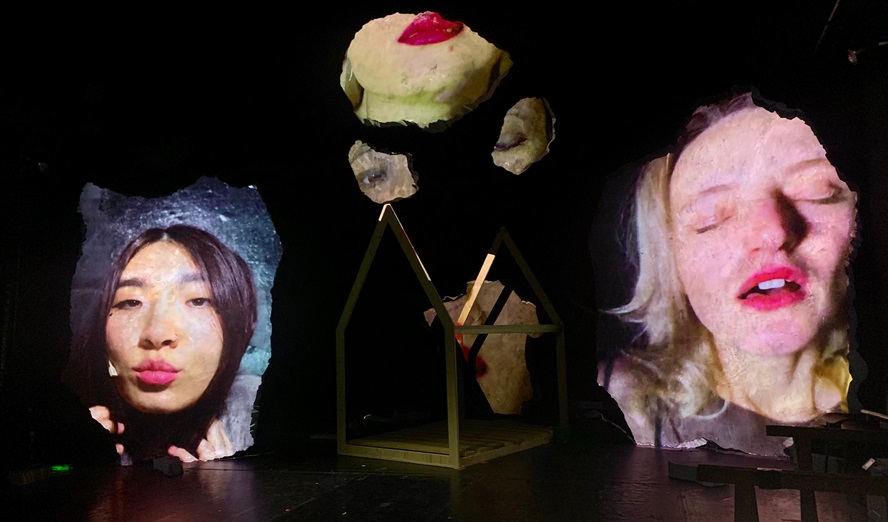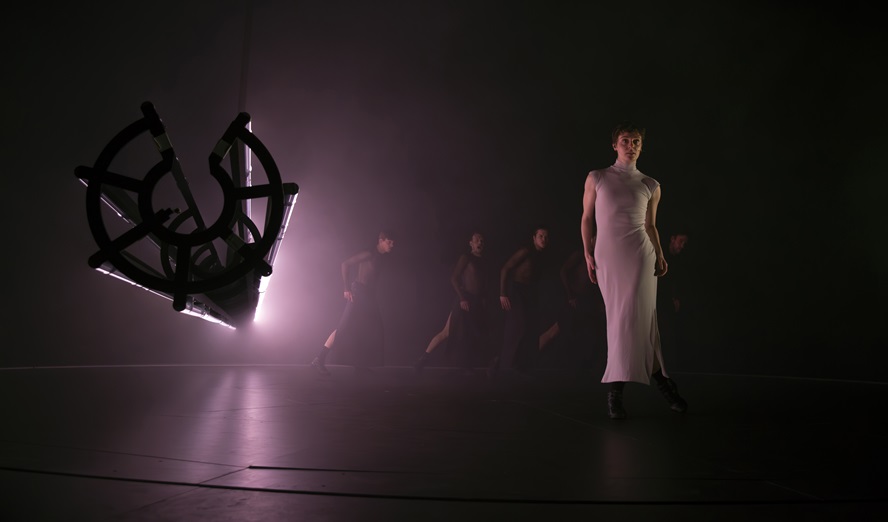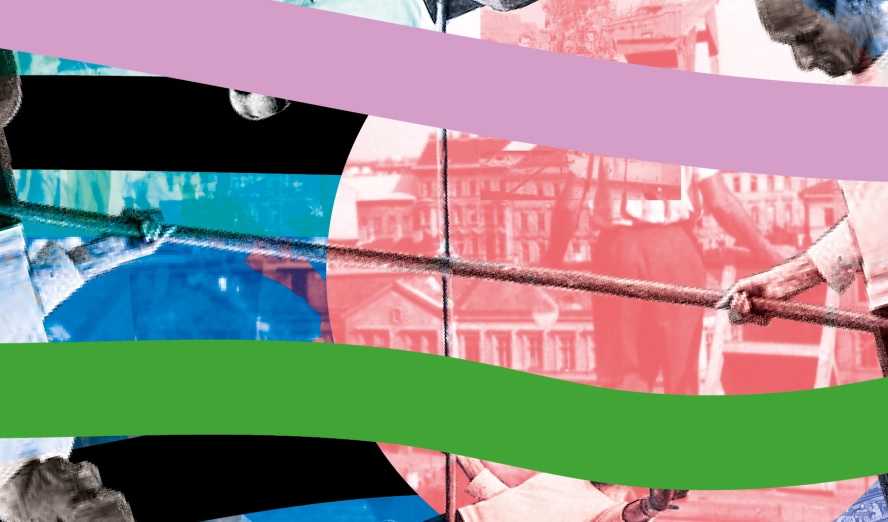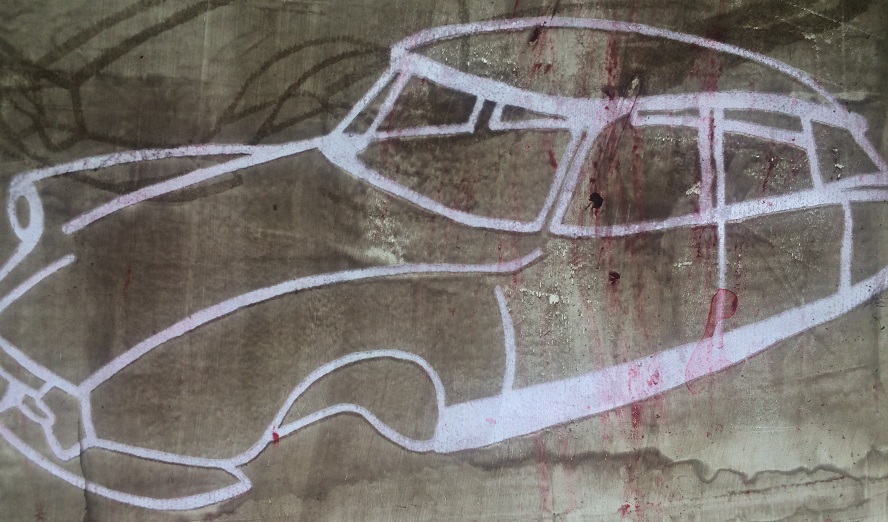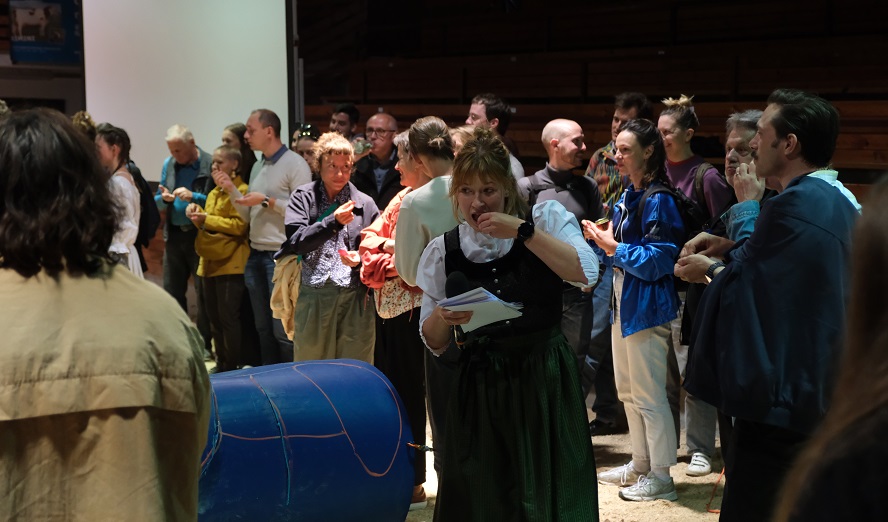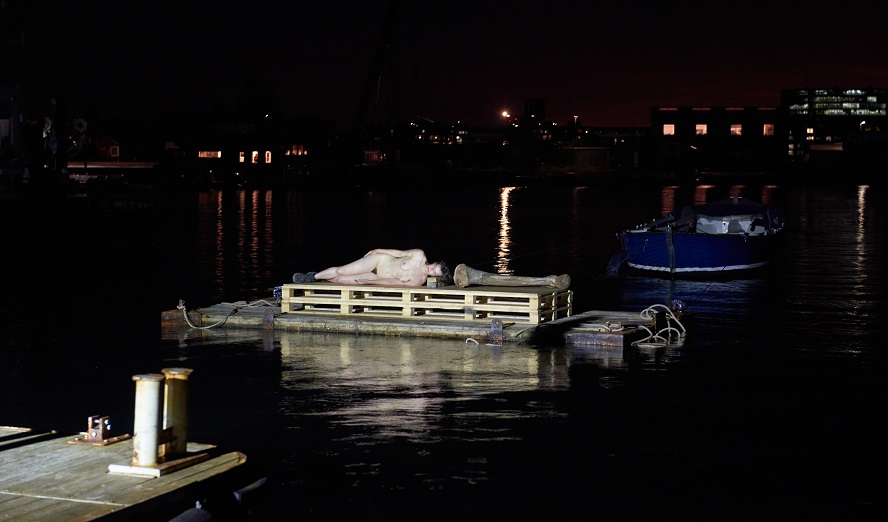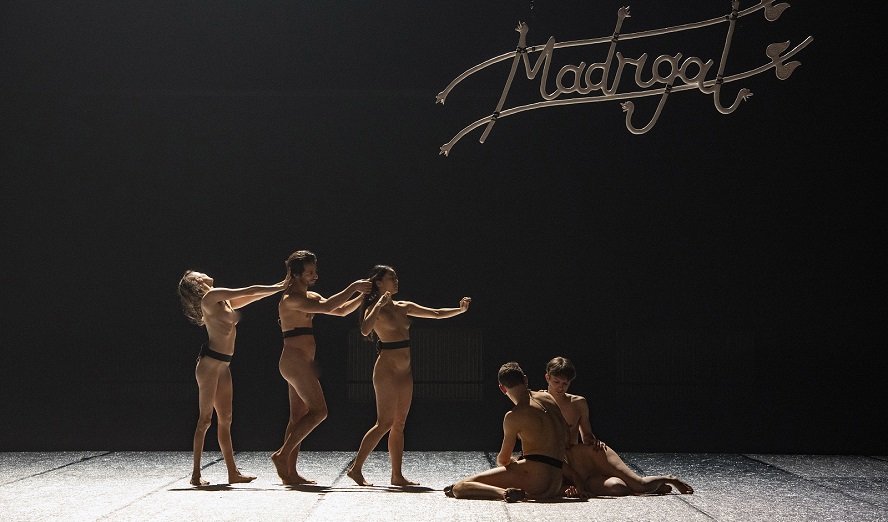We must go back. Far back. Back to mythology, revenge tragedy, back even further to raw nakedness, greed and breakdown, cannibalism, survival, ritual, imagination. Back before humans made a difference and distinguished between good and evil. How did we manage to communicate without violence? Enter the world of »Thyestes Brüder! Kapital – Anatomy of a Revenge« by Claudia Bosse, performed by theatercombinat.
»In the beginning was the w…« Wait! Not so fast!
As an English native speaker living in Vienna, still grappling with the intricacies of the German language, the initiation into Austrian theatre has been daunting. Even in day-to-day life, without the assistance of subtitles, translation apps, and dictionaries, an ordinary task becomes a full-blown project. Conversations become soundscapes. Within the context of a dramatic play, there is no time to refer to helpful sources. One must look, listen, smell, touch, feel beyond the word. On a personal note, being privy to a couple of rehearsals, experiencing the opening night, and discussing the work with the actors, has certainly enhanced my own experience, but it would be possible for anyone to find »Thyestes« fascinating, macabre, and at times darkly humorous. Without knowledge of German, one is guided by the sensations of what is presented and submits to the mesmeric rhythm of the sounds and movements. Fear not, my English-speaking friends and lovers of theatre. This work, as clear and deeply chilling as Shakespeare’s gore-fest »Titus Andronicus«, is more than long passages of prose, violence, and blood. It is a mirror and in any language the mirror moves us. Aspects of the production, other than words, more than carry the creepy narrative. Observe the walk-through audience: one moment expressing rubbernecked curiosity, another moment turning to a loved one with an expression of horror. Is this really happening? Words can’t express this.
Back to a time when language was the body
While this play is written to express mythological symbolism and its relationship to our lives today, it is not only about the text. It presents a retreat further back in time and into our bodies. Back to a time when language was the body. The audience is guided into the realisation, »I am alone. I am different to myself and others. I am naked and pulsing before you. I have no choice but to delve deeper into the life in which I have been thrust. I scream into the darkness as I struggle for freedom or, at very least, escape.« The »I«, represented by the five actors wearing nothing but shoes and attitude, is compelled to express its existence through one intense gesture of life’s pain and strain: the scream. Now the play, directed by Claudia Bosse, sound by Günther Auer, and based on Seneca’s tragedy »Thyestes« in the translation by Durs Grünbein using texts by Karl Marx (»Fundamentals of Political Economy Criticism«) and Heiner Müller, begins.
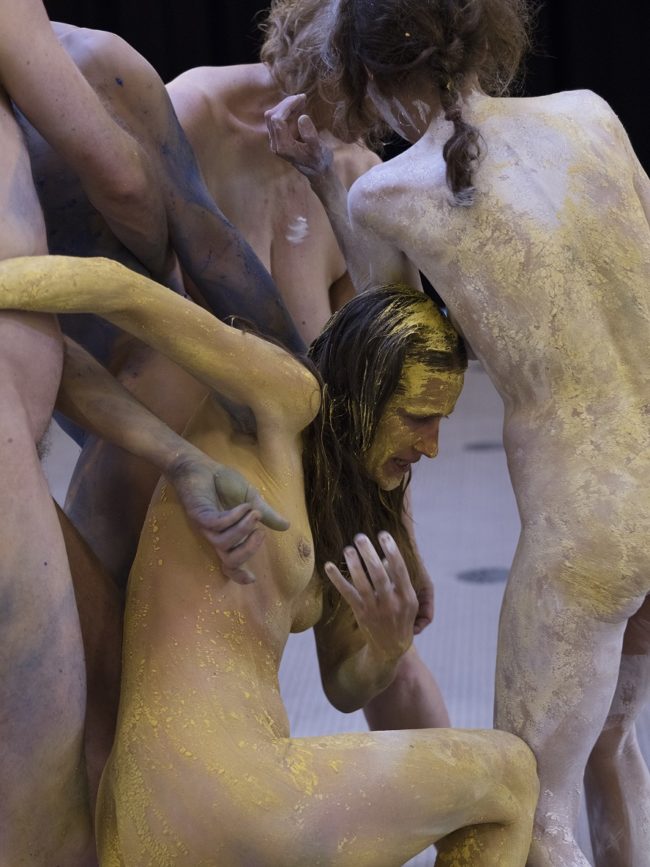
Whether one understands the language or not, what allows this play to penetrate into the realm of comprehension is the movements, colours, lights, sounds, spaces, gestures, vocalisations, intersections between the audience and the actors, mouths, the tongue… I will begin with the heart. Her heart, then his heart, then two hearts, then more hearts. This internal life-giving organ is a symbol of love, hate, revenge and regret. Initially pulsing through the amplifiers as an auditory atmospheric enhancement pervading the murky space, it generates the breath and the screams before leading to the adrenaline rush of Lilly Prohaska’s hurricane-like lament, as she summons the gigantic spirit of Tantalus, from her petit frame through words that mean nothing without the crouching posture and the explosive, rhythmic vocalisations. This is our initiation into the story of the heart that continues with a choir of heartbeats clamouring for attention and desire and ends with two massive bloody hearts as centrepieces of a macabre final dance of power.
»They make these words listen through their bodies… and touch the future through the past« (Claudia Bosse)
Throughout this production, the breath is brought to our attention. More than words can say, the breath is the rhythm of life. With it, language is refined. Now there is the word and its meaning. Now the non-German speaker must focus. Do we submit to the realisation that the words will remain semi-opaque and accept our relationship to imperfection as we challenge ourselves to be perfect? Warum nicht? The reward is to enter into a rich historic and unique world where one encounters sensations that challenge our perception of present condition and future intentions. Beyond the text is the colour. Each colour signals another viewpoint, another difference. The naked actors are daubed, splattered, stroked, self-immersed with their own coloured paint. White, yellow, violet, brown and finally real blood produce a throbbing rainbow representing frustrating misfortune, seductive fury, bestial revenge, portentous reportage, through to dire consequences. The colours, through their corporeal abstraction, flood us with world-weary messages to act now, before it’s too late.
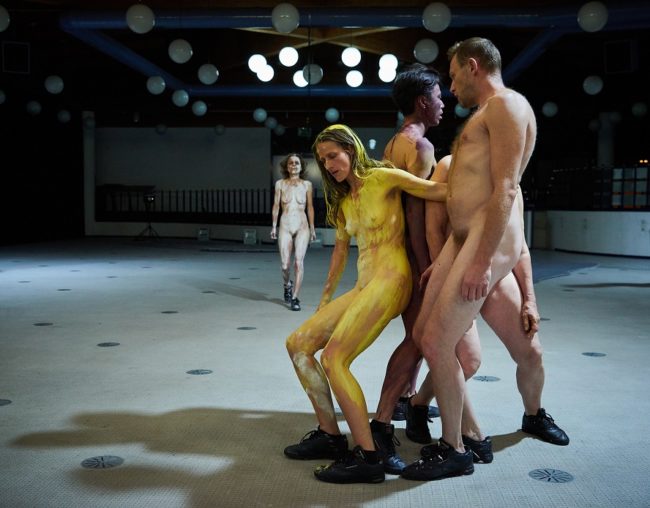
Not all is dark and depressing
Spotlights spring suddenly from one corner of a seemingly deserted office cafeteria (Kasino am Kempelenpark) to focus on another twist of plot. For one split second some of the audience, bathed in limelight, are part of the story. Are we challenged to bravely face a new direction? Children of the youth choir enter like a slow-motion swarm of chanting bees generating their own sweet energies. All is not lost and we see our future. The sensitive choreography, often led by the elegant movements of Atreus, played by Mun Wai Lee, is at times heart-breaking in its vulnerability. In one scene, the actors press in on each other and slowly shift, caressing and supporting as they speak in chant-like unison; the concept of co-dependency is spelt out with desperation, tenderness, and honesty. Thyestes, played by Nic Lloyd, and Atreus become each other’s loudspeakers as they holler into the depths of one another’s throats. Smells of cooked flesh (real, not theatre flesh) that reek into the darkness, initially trigger a response in the pit of the stomach. We are reminded of reality: what gives us life and reason to live? Eat until you’re satisfied. Feast! Meanwhile, back on the production line, Juri Zanger recites fragments of Marx in fresh, white underwear while on a ladder. A lone tongue back-answers Thyestes. Children dodge each other playfully in the gloom. While sinking into the darkest moments we can be bathed in lightness and humour.
The idea that a non-German speaker will find this too daunting to experience fully is to ignore the touching theatrical point of theatercombinat’s production. Many other dramatic aspects convey concepts beyond words. While it obviously enhances the level of understanding of the dense text, knowledge of German is not necessary to experience this production in a satisfyingly disturbing or a disturbingly satisfying way. The poignant moments are crystal clear: The gestures of fury and care from Rotraud Kern and Alexandra Sommerfeld carry unmistakable meaning. When Thyestes receives the horrifyingly unwelcome revelation that he has just been fed his sons, one is understandably sickened in any language. The actors and audience become a mobile that moves us from the imperfection of human existence into the potential of the unknown. In the end, movement transcends the word.
»Thyestes Brüder! Kapital – Anatomy of a Revenge« by Claudia Bosse is performed from October 2nd to 17th, 2019 by theatercombinat at Kasino am Kempelenpark, Vienna.
Link: http://www.theatercombinat.com/projekte/thyestes/thyestes_eng.htm
